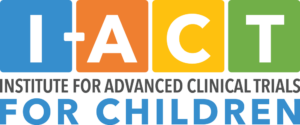Overview of Cell and Gene Therapy Guidance
Cellular therapy products include cellular immunotherapies, cancer vaccines, and other types of both autologous and allogeneic cells for certain therapeutic indications, including hematopoietic stem cells and adult and embryonic stem cells. Human gene therapy seeks to modify or manipulate the expression of a gene or to alter the biological properties of living cells for therapeutic use. The National Institutes of Health (NIH) reports that nearly 7,000 rare diseases affect more than twenty-five million Americans. Approximately 80% of rare diseases are caused by a single-gene defect, and about half of all rare diseases affect children. Since most rare diseases have no approved therapies, there is a significant unmet need for effective treatments, and many rare diseases are serious or life-threatening conditions.
Multiple guidances have been published by the Food and Drug Administration as recommendations to sponsors developing human gene therapy (GT) products intended to treat a rare disease in adult and/or pediatric patients regarding the manufacturing, preclinical, and clinical trial design issues for all phases of the clinical development program. To design clinical development programs for such products, it is apparent that there is a limited study population size and potential feasibility and safety issues, as well as issues relating to the interpretability of bioactivity/efficacy outcomes may be unique to rare diseases or for the specific GT product. GT-related research and development in the area of rare diseases continues to grow at a rapid rate. FDA has presented multiple guidances on pre-approval and post-approval regulatory requirements and expectations for clinical data to inform the benefit-risk (B/R) profile to ensure clear and practicable expectations of safety and efficacy for the development of cellular therapies.
Please see https://www.fda.gov/vaccines-blood-biologics/biologics-guidances/cellular-gene-therapy-guidances for further information of the following guidances:
- Considerations for the Development of Chimeric Antigen Receptor (CAR) T Cell Products; Draft Guidance for Industry
3/2022 - Human Gene Therapy Products Incorporating Human Genome Editing; Draft Guidance for Industry
3/2022 - Policy for Certain REMS Requirements During the Tocilizumab Shortage Related to the COVID-19 Public Health Emergency; Guidance for Industry and Health Care Professionals
12/2021 - Interpreting Sameness of Gene Therapy Products Under the Orphan Drug Regulations; Guidance for Industry
9/2021 - Studying Multiple Versions of a Cellular or Gene Therapy Product in an Early-Phase Clinical Trial; Draft Guidance for Industry
9/2021 - Manufacturing Considerations for Licensed and Investigational Cellular and Gene Therapy Products During COVID-19 Public Health Emergency; Guidance for Industry
1/2021 - Human Gene Therapy for Neurodegenerative Diseases; Draft Guidance for Industry
1/2021 - Chemistry, Manufacturing, and Control (CMC) Information for Human Gene Therapy Investigational New Drug Applications (INDs); Guidance for Industry
1/2020 - Long Term Follow-up After Administration of Human Gene Therapy Products; Guidance for Industry
1/2020 - Testing of Retroviral Vector-Based Human Gene Therapy Products for Replication Competent Retrovirus During Product Manufacture and Patient Follow-up; Guidance for Industry
1/2020 - Human Gene Therapy for Hemophilia; Guidance for Industry
1/2020 - Human Gene Therapy for Rare Diseases; Guidance for Industry
1/2020 - Human Gene Therapy for Retinal Disorders; Guidance for Industry
1/2020 - Evaluation of Devices Used with Regenerative Medicine Advanced Therapies; Guidance for Industry
2/2019 - Expedited Programs for Regenerative Medicine Therapies for Serious Conditions; Guidance for Industry
2/2019 - Regulatory Considerations for Human Cells, Tissues, and Cellular and Tissue-Based Products: Minimal Manipulation and Homologous Use; Guidance for Industry and Food and Drug Administration Staff
Updated: 12/2017 - Same Surgical Procedure Exception under 21 CFR 1271.15(b): Questions and Answers Regarding the Scope of the Exception; Guidance for Industry
11/2017 - Deviation Reporting for Human Cells, Tissues, and Cellular and Tissue-Based Products Regulated Solely Under Section 361 of the Public Health Service Act and 21 CFR Part 1271; Guidance for Industry
9/2017 - Recommendations for Microbial Vectors Used for Gene Therapy; Guidance for Industry
9/2016 - Design and Analysis of Shedding Studies for Virus or Bacteria-Based Gene Therapy and Oncolytic Products; Guidance for Industry
8/2015
